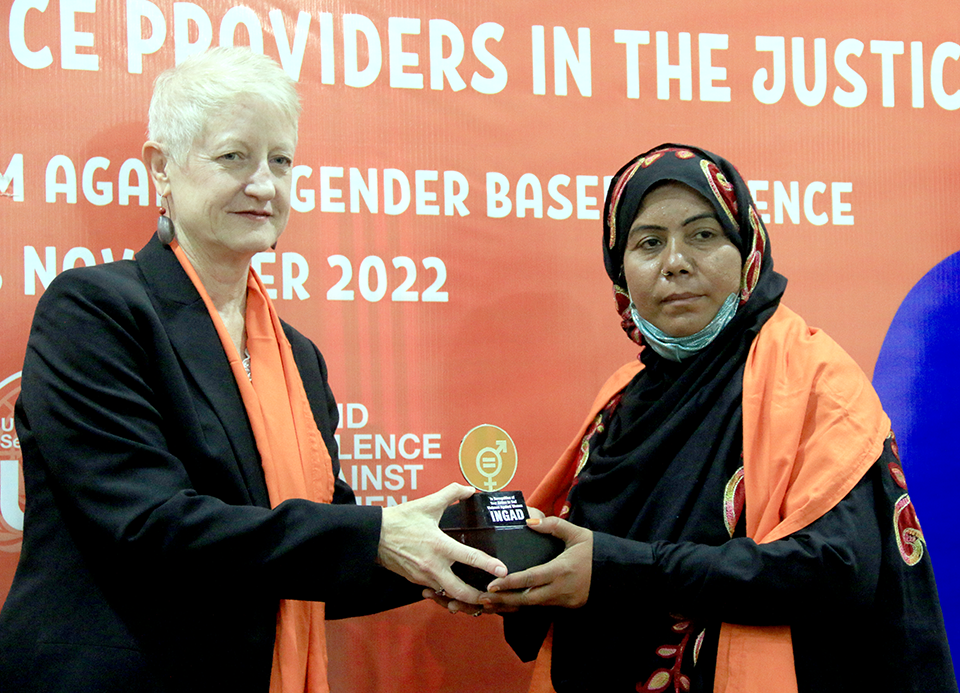
UN system partnerships

UN Women has continued to make progress in fulfilling its function of assisting and coordinating the UN System strategies, policies, and actions to promote effective system-wide gender mainstreaming.
UN Women Pakistan builds on its current and past partnerships with UN Agencies with greater emphasis on joint programming and promotion of pooled financing under the UN Sustainable Development Cooperation Framework for Pakistan (UNSDCF) 2023-27. The UNSDCF comprises five outcome areas, out of which one is a stand-alone outcome for Gender Equality and Women Empowerment, that UN Women leads. For the remaining outcome areas, UN Women contributes to these as a partner agency.
The Gender Equality and Women and Girls Empowerment Inter-Agency Group (GEWGE IAG)
UN Women chairs GEWGE IAG serving as the Gender Theme Group (GTG), an interagency coordination group that provides strategic support and advice to United Nations country teams in enhancing their gender mainstreaming efforts. The GEWGE IAG aims to promote gender equality and empowerment of all women and girls through gender-responsive performance management and strategic planning, sex-disaggregated data, reporting and resource tracking while drawing on gender expertise to mainstream gender equality in the implementation of the Cooperation Framework.
The Interagency Gender and Development Group (INGAD)
UN Women serves as a permanent co-chair along with a rotating co-chair and secretariat facilitating strategic dialogue and joint advocacy on issues related to gender equality and women’s empowerment in the development and humanitarian sectors, and interagency coordination in Pakistan. Since 1985, the network consisting of bilateral actors, multilateral agencies (including UN agencies) and international financial institutions (IFIs) has been functional/operational to promote gender equality through interagency coordination and collaboration.